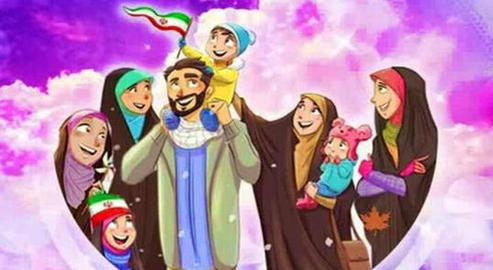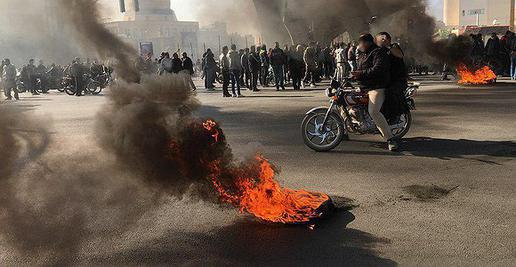Believe it or not, even in a big modern city like Tehran, there is still serious discussion about the so-called virtues of polygamy.
A mullah on TV made the case for it not so long ago, and a debate erupted on social media. It revealed that a lot of men – rich and poor – still fantasize about it.
When the Supreme Leader weighed in, as usual, his contribution was a gnomic fudge:
“Though polygamy is not prohibited in the Koran, if justice between the wives is not observed, it is advisable to remain monogamous.”
Iranian women reacted with fury. Then Mehr News reported that the Supreme Leader’s media team had tried to repair the damage by claiming the old fellow’s motto is: “One God; One Love; One Lover.”
History shows that mainstream Islamic clerics in Iran have resisted official initiatives to outlaw polygamy. Only the dissident religious leader the Bab back in the 19th century denounced it, and he faced savage persecution as a result. Apart from him, none of our religious leaders have had the courage to issue a fatwa against it.
Could it be that they don’t want to face the facts about the lack of Iranian men? Over the decades young, fit Iranian males have either been killed or maimed in war or have elected to escape from poverty and corruption by emigrating.
That’s meant a shortage of eligible men, and some two million educated women in their thirties and forties who can’t find – or do not want – a husband. The clerics’ remedy? You can hear them on state TV admonishing these women to become third or fourth wives. That – they say – is preferable to remaining a spinster. Of course these clerics quote the Prophet: “Marriage is my tradition and anyone who denies marriage cannot be devoted to me.”
And as if that’s not bad enough, our clerics won’t outlaw the stoning of women convicted of adultery.
In the 1990s, Iran’s Revolutionary government faced fierce international criticism over stoning. Rather than admit that it was barbaric and had to stop, they weakly conceded that “as stoning makes our dear Islam weak and fragile, we will impose a moratorium on it.” Nothing about the poor women.
How long can Iran continue to modernize socially and economically, and yet put up with stone age “justice” rooted in medieval Islam?
In just the last few months in Sari, south of the Caspian Sea, a thief had four fingers of his right hand cut off with an electric saw. Does this kind of inhumanity not “make our dear Islam weak and fragile” too?
Iran has never had its Enlightenment. The Farsi-speaking people of this country remain in thrall to a religious establishment that is complacent and backward.
It’s not a new problem, of course. I quote Jacob Bronowski, author of the wonderful 1970s book (that accompanied the equally wonderful TV series), The Ascent of Man:
“... the battle between past and future was summarized prophetically in 1527 in a single action outside the Münster at Basel. Paracelsus publicly threw into the traditional student bonfire an ancient medical textbook by Avicenna [a philosopher from Afshana in the Persian empire].”
"Iranians in general...and clergymen living in today’s Farsi-speaking world do not dare to criticize their past history or religion....[or] find modern solutions for modern problems...as they deem necessary.”
A female journalist visiting Tehran from the UK once offered to shake hands with one of Iran’s most prominent self-proclaimed reform activists. He declined.
“Do you find me sexually provocative?” she asked.
“No,” he said.
“Then why won’t you shake my hand?”
“Because it’s Ramadan,” he replied. “And it is our tradition.”
“You call yourself a reformer,” she scoffed. “Real reformists would be taking on traditions that reinforce your hidebound establishment. In Europe, reformists in the Middle Ages challenged the Church, the priests and the preachers who were on the wrong side of history, and had the courage to champion Enlightened values.”
“You may not like to hear it, but that’s what the reform movement will have to do here if President Rouhani and his supporters are serious.”
Sadly, it is crystal clear that they are not serious at all.
Related coverage:
Faezeh Hashemi: If polygamy is good, it should be permitted for women too




















comments